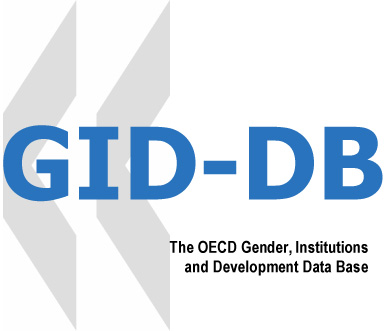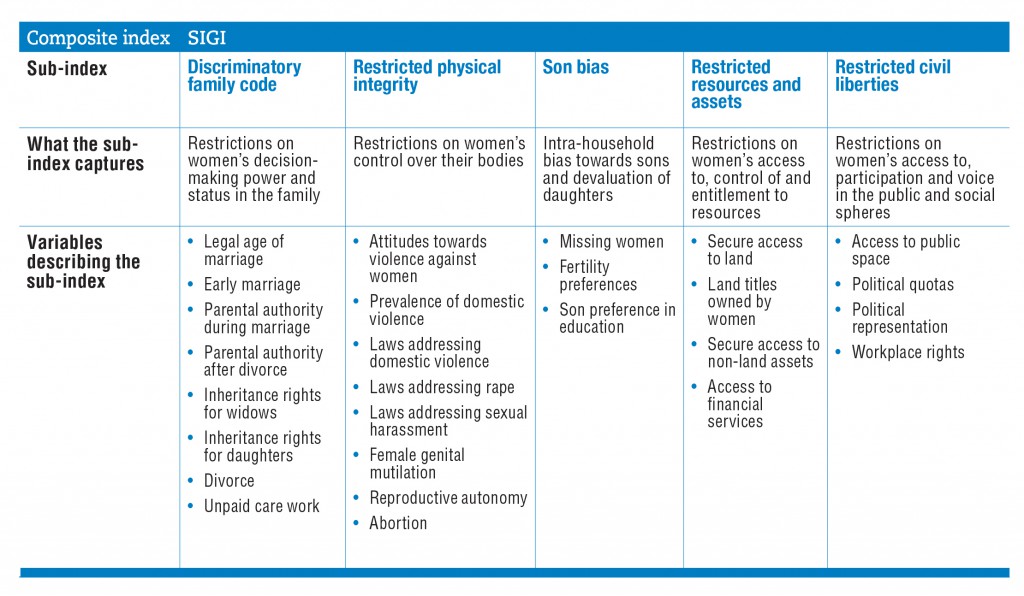Gender, Institutions and Development Database (GID-DB)
 The Gender, Institutions and Development Database (GID-DB) is the only database providing researchers and policymakers with key data on gender-based discrimination in social institutions. This data helps analyse women’s economic empowerment and understand gender gaps in other key areas of development.
The Gender, Institutions and Development Database (GID-DB) is the only database providing researchers and policymakers with key data on gender-based discrimination in social institutions. This data helps analyse women’s economic empowerment and understand gender gaps in other key areas of development.
Discriminatory social institutions are formal and informal laws, social norms and practices that restrict or exclude women and consequently curtail their access to opportunities, resources and power.
Social institutions set the parameters of what decisions, choices or behaviours are deemed acceptable or unacceptable in a society and therefore play a key role in defining gender roles and relations.
By influencing the unequal distribution of power between women and men in the private realm of the family, in the economic sphere and in public life, discriminatory social institutions constrain women’s capabilities to live the life they wish to. This, in turn, has negative impacts on development outcomes.
Covering 160 countries, the GID-DB contains comprehensive information on legal, cultural and traditional practices that discriminate against women and girls.
See the entire GID-DB here.
The GID-DB is compiled from various sources and combines
- quantitative gender statistics from international and national sources and
- qualitative information from SIGI country profiles (accessible at http://genderindex.org/countries/).
The GID-DB comprises 33 indicators on gender discrimination in social institutions, offering three levels of analysis:
- The Social Institutions and Gender Index (SIGI), a composite index quantifying all dimensions in which social institutions discriminate against women and girls.
- 5 sub-indices describing specific dimensions of discrimination.
- 27 individual variables grouped by dimension providing details on social institutions
The Following chart shows the variables covered in the GID-DB:



